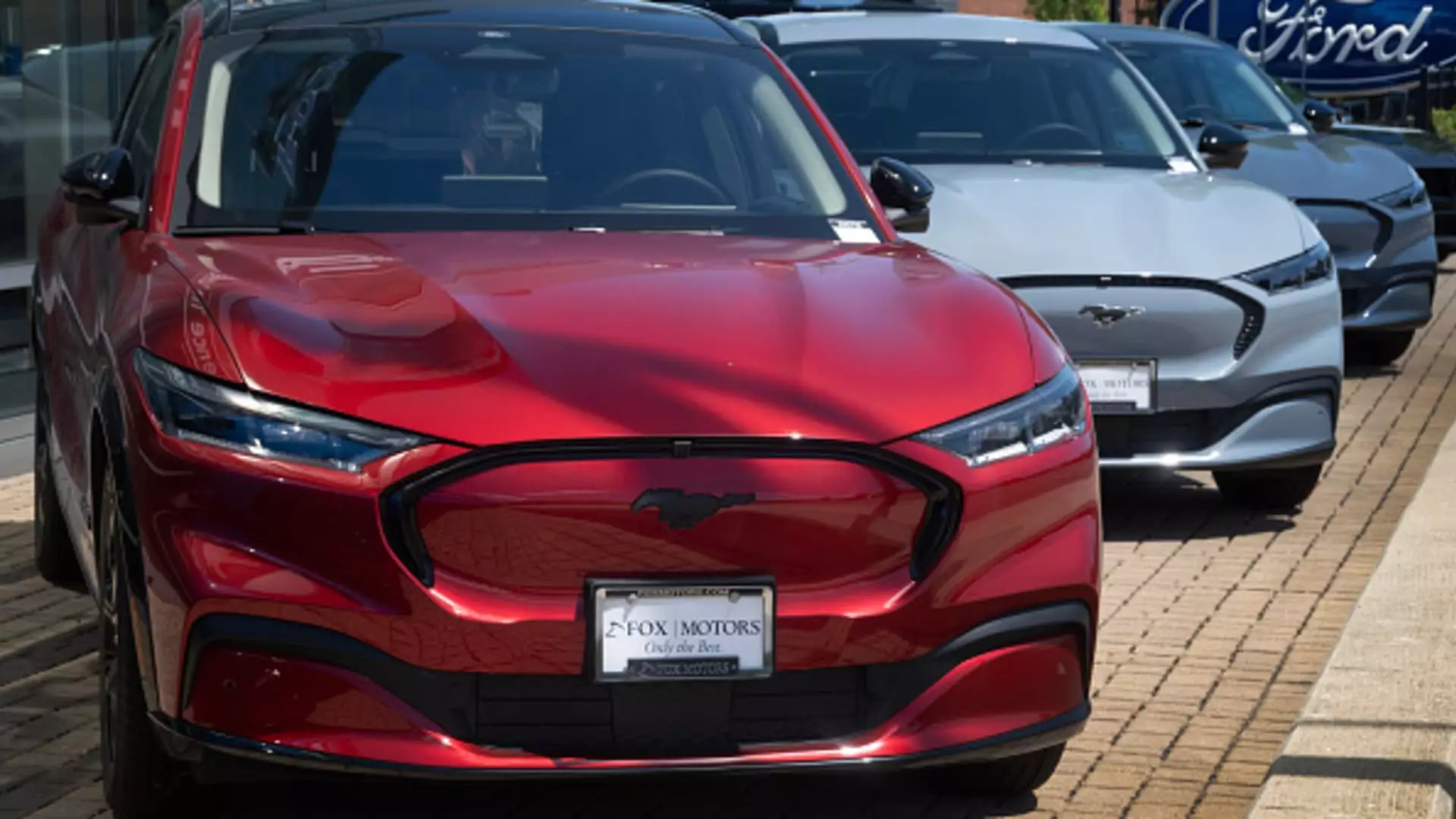Ford’s second quarter sales saw a 1% increase compared to the same period last year, with truck sales leading the way with a 5% gain. The total number of trucks sold during this period reached 308,920 vehicles, marking the best second-quarter performance for this category since 2019. The F-Series, in particular, accounted for 199,463 of those vehicles sold.
In addition to the strong performance in truck sales, Ford also saw growth in its electric vehicle (EV) and hybrid sales. Sales of Ford electric vehicles totaled 23,957 during the second quarter, representing a significant 61% increase over the previous year. The success of models such as the Mustang Mach-E and F-150 Lightning has attracted new customers to the brand. Moreover, hybrid vehicle sales reached 53,822 units, a 56% increase and a new quarterly record for Ford since introducing hybrid models over two decades ago.
The positive sales performance by Ford comes amid a broader trend in the auto industry towards electric and hybrid vehicles. Automakers, including Ford and General Motors, have been focused on transitioning towards more sustainable options to meet tightening fuel efficiency standards. General Motors, Ford’s crosstown rival, also reported a slight increase in second-quarter sales, with a 0.6% rise compared to the previous year.
Despite ongoing challenges in the global market, Ford’s sales performance exceeded expectations, with modest increases in both truck and electric vehicle sales. Industry forecasters, such as Cox Automotive and Edmunds, had anticipated a relatively flat year-over-year sales comparison for the second quarter. However, Ford’s ability to outperform these expectations demonstrates its competitiveness in the market and strong consumer demand for its vehicles.
Ford’s second quarter sales performance highlights its success in key market segments, including trucks, electric vehicles, and hybrids. By leveraging innovative technologies and responding to changing consumer preferences, Ford has been able to attract new customers and achieve record sales figures. As the industry continues to evolve towards more sustainable solutions, Ford’s strategic focus on electric and hybrid vehicles positions it well for future growth and success.

